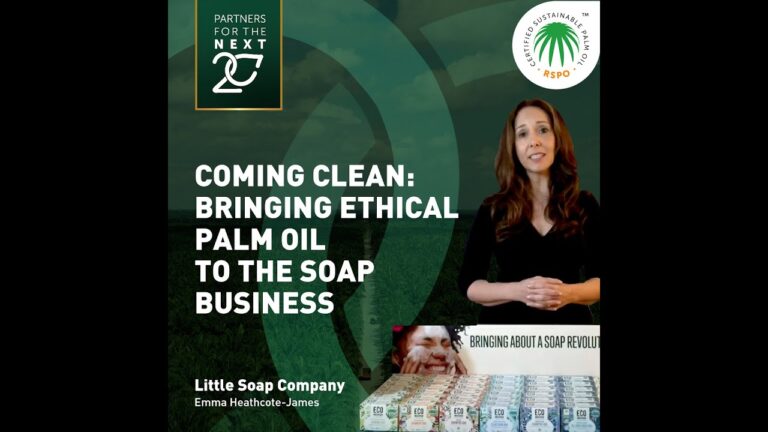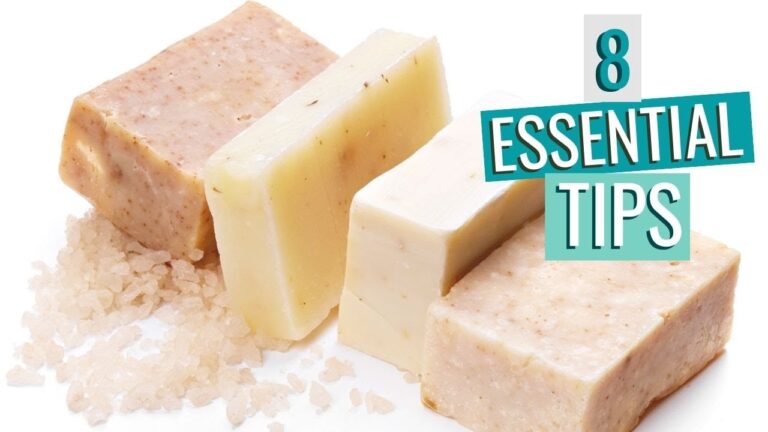In a world where conscious consumerism is on the rise, the demand for ethically sourced products is higher than ever. When it comes to something as everyday as soap, ensuring that it is produced in a sustainable and ethical manner is crucial. From responsibly sourced ingredients to fair labor practices, ethical sourcing for soap is becoming a top priority for many consumers. Join us as we explore the importance of ethical sourcing in the soap industry and how you can make more informed choices as a consumer.
How can ethical soap be made?
Looking to make your own ethical soap? Look no further than natural oils, water, and lye. With just these simple ingredients, you can create a sustainable, eco-friendly soap that’s good for both your skin and the environment. Whether you choose the hot-process method for a quick cure, or the cold-process method for a longer-lasting soap, you’ll be sure to have a product that is both ethical and effective.
One of the best ways to make ethical soap is by using a slow cooker for the hot-process method. This allows for a quick cure in just a few days, resulting in a luxurious bar of soap that is ready to use in no time. If you prefer to take a more hands-off approach, the cold-process method requires no cooking and allows the soap to cure over several weeks. Whichever method you choose, you can be confident that you are creating a product that is not only good for your skin, but also for the planet.
If you’re short on time or simply prefer a simpler method, consider using pre-made soap bases to create melt-and-pour soap. This allows you to skip the soap-making process altogether and still create a product that is ethical and environmentally friendly. With so many options available, it’s easier than ever to make your own ethical soap at home.
Can you provide an example of ethical sourcing?
When it comes to ethical sourcing, Fair Trade products are a prime example of companies making conscious and responsible decisions in their procurement process. These companies prioritize working with Fair Trade-certified suppliers when sourcing products like coffee, chocolate, and bananas. By doing so, they ensure that the farmers and producers are paid fair wages, work in safe conditions, and are committed to sustainable environmental practices. This not only supports ethical business practices, but also promotes social and environmental responsibility.
In addition to Fair Trade products, another example of ethical sourcing can be seen in companies that prioritize working with local farmers and producers. By sourcing locally, companies can reduce their carbon footprint, support local economies, and build transparent and sustainable supply chains. This not only promotes ethical business practices, but also allows for greater traceability and accountability in the sourcing process. Overall, prioritizing local sourcing can have a positive impact on both the community and the environment.
Furthermore, another example of ethical sourcing is companies that prioritize working with suppliers who adhere to strict labor and human rights standards. This means ensuring that the workers involved in the production process are treated fairly, have safe working conditions, and are not subjected to any form of exploitation. By making ethical sourcing a priority, companies can help to combat issues such as child labor, forced labor, and discrimination, while also promoting a more socially responsible and sustainable supply chain.
What does ethical sourcing of ingredients entail?
Ethical sourcing of ingredients involves procuring products and services in a responsible manner, ensuring that the production process does not harm individuals or the environment. This includes verifying that working conditions are fair, employees are not put in harm’s way, and no fraudulent or illegal behavior is involved in obtaining the ingredients. By prioritizing ethical sourcing, companies can ensure that their products are not only high quality, but also socially and environmentally responsible.
Ensuring Sustainability through Ethical Sourcing
In today’s globalized world, sustainability is a key concern for businesses looking to make a positive impact on the environment and society. One way to ensure sustainability is through ethical sourcing practices. By carefully selecting suppliers who adhere to ethical standards and prioritize environmental and social responsibility, companies can contribute to a more sustainable supply chain.
Ethical sourcing involves considering not only the quality and cost of products, but also the impact of their production on people and the planet. This means working with suppliers who treat their workers fairly, pay them a living wage, and prioritize environmental conservation. By choosing to source ethically, businesses can build a more positive reputation with consumers who are increasingly demanding transparency and accountability from the brands they support.
Ultimately, ensuring sustainability through ethical sourcing is not only a responsible choice but also a smart business decision. By aligning with suppliers who share the same values, companies can reduce risks related to labor violations, environmental damage, and reputational harm. Embracing ethical sourcing practices is a win-win for all stakeholders involved, leading to a more sustainable future for generations to come.
How Ethical Sourcing Shapes Soap Production
Ethical sourcing plays a crucial role in shaping the production of soap, ensuring that ingredients are sourced responsibly and sustainably. By prioritizing ethical practices, soap manufacturers can support fair labor conditions, protect the environment, and uphold the rights of local communities. This commitment to ethical sourcing not only benefits the planet and its people but also enhances the quality and reputation of the soap products, appealing to consumers who value transparency and ethical values in their purchases. Ultimately, ethical sourcing is a cornerstone of responsible soap production, creating a positive impact on society and the environment.
In an age where consumers are increasingly conscious of the impact of their purchases, ethical sourcing for soap has become a crucial consideration for many. By choosing products that are ethically sourced, consumers can contribute to the well-being of both the environment and the people involved in the production process. As the demand for ethically sourced soap continues to grow, it is evident that the industry is moving towards a more sustainable and responsible future. Making informed and ethical choices when it comes to soap purchasing can have a positive ripple effect on communities and the planet as a whole.



